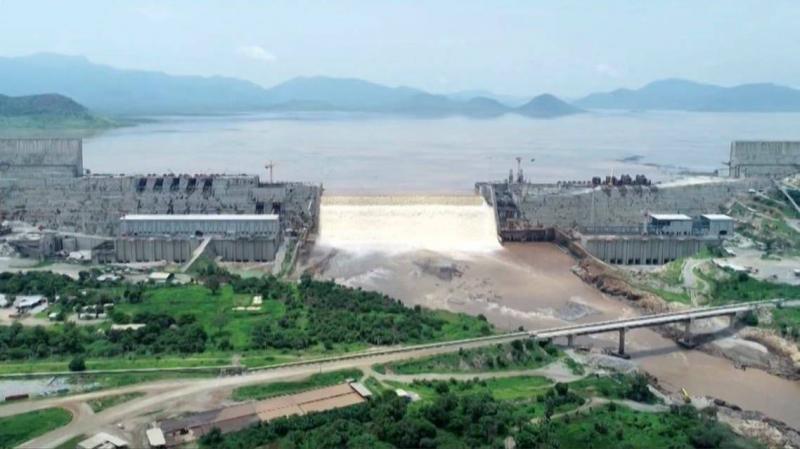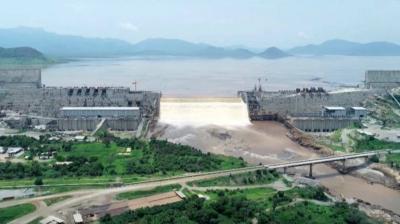Egyptian President Abdel Fattah El-Sisi confirmed today, Wednesday, that Egypt's position is steadfast in reaching a binding agreement regarding the filling and operation of the Renaissance Dam, in a way that meets the interests of all parties involved in development efforts and maintains Egypt's water security.
For his part, Sudanese Minister of Irrigation Yasser Abbas stated that the filling data confirms the necessity of information exchange between the Renaissance Dam and the Rosiers Dam. He added that the Renaissance Dam has benefits for Sudan in terms of electricity generation and reducing silt and floods, but this is conditional on reaching an agreement. "There will be no negotiations under the previous methodology."
He further stated that Sudan is not prepared to enter negotiations with Ethiopia using the same previous methodology, as this would mean buying time. He explained that the issue in the Renaissance Dam negotiations is the lack of political will, noting that the Blue Nile is an international river shared by three countries, and thus the agreement must be trilateral. In this context, he pointed out that half of Sudan's population will be affected and threatened by the Renaissance Dam unless an agreement is reached.
**Ten Years of Negotiation**
It is worth mentioning that since 2011, the downstream countries have been negotiating to reach an agreement on the filling and operation of the dam, which Ethiopia considers the largest source of hydropower generation in Africa with a capacity of up to 6,500 megawatts, without reaching a consensus. In March 2015, leaders from the three countries signed a Declaration of Principles agreement in Khartoum; however, disagreements have persisted and intensified with Ethiopia starting the second filling of the dam's reservoir this month.
Egypt views the dam as a serious threat to its supplies of Nile water, on which it almost entirely relies. Sudan has also expressed concerns regarding the dam's safety and its impact on its own dams and water stations. Long-standing diplomatic efforts have not succeeded in resolving the dispute among the three countries. Additionally, the United States has indicated that Ethiopia's filling of the dam could raise tensions, urging all parties to refrain from unilateral actions.




